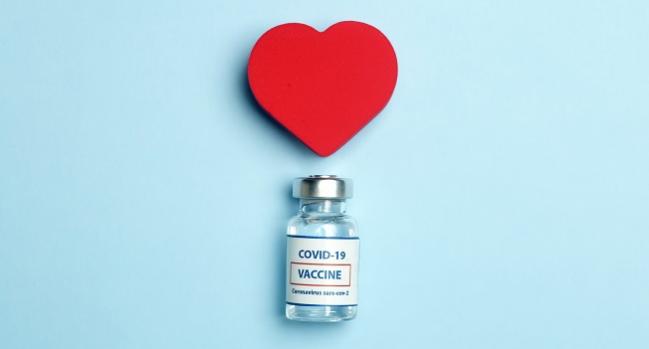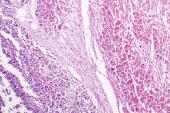US, European Agencies Looking Into Myocarditis Reports Tied to mRNA COVID-19 Vaccines
The AHA says the benefits of getting the shot still “enormously outweigh” any small related risk of myocarditis, if it exists.

(UPDATED) Agencies in the United States and Europe are assessing reports of myocarditis developing in people who have received one of the mRNA-based COVID-19 vaccines, although no definitive link has yet been established.
The US Centers for Disease Control and Prevention (CDC) recently alerted clinicians to the possible association, with the COVID-19 Vaccine Safety Technical (VaST) work group of its Advisory Committee on Immunization Practices releasing a brief report last week. The group heard about the “relatively few reports of myocarditis” based on data from the Department of Defense, the Vaccine Adverse Event Reporting System (VAERS), and the Vaccine Safety Datalink. The cases mostly involved adolescents and young adults and tended to occur more often in males, after the second dose, and within 4 days of the shot.
“Most cases appear to be mild, and follow-up of cases is ongoing,” according to the report. “Within CDC safety monitoring systems, rates of myocarditis reports in the window following COVID-19 vaccination have not differed from expected baseline rates. However, VaST members felt that information about reports of myocarditis should be communicated to providers.”
These are not the first indications of potential myocarditis issue after COVID-19 vaccination. In April, Israel said it was looking into this issue in small number of patients who received the mRNA-based Pfizer/BioNTech vaccine, according to Reuters. Days later, the CDC said it had not found such a link.
About a week after that, the safety committee of the European Medicines Agency announced that it was evaluating reports of myocarditis and pericarditis in people who had received either the Moderna or Pfizer/BioNTech vaccine, but mostly the latter, saying: “There is no indication at the moment that these cases are due to the vaccine.”
Mohammad Madjid, MD (University of Texas Health Science Center, Houston), told TCTMD that even though investigations into the possible association between vaccination and myocarditis are in the preliminary stages, the CDC did the right thing by alerting the medical community to the issue so physicians can better assess potential cases.
Madjid said he recently evaluated a young patient with no previous medical issues who presented with chest pain a few days after receiving a COVID-19 vaccine shot, and the information presented by the CDC allowed him to quickly appreciate that the patient had a focal myocarditis. “Being aware of the possibility of it is a very good thing, because we can make better clinical decisions,” he said.
It’s difficult to establish a causal connection between the mRNA vaccines and myocarditis what with such a large proportion of the population has been vaccinated, Madjid pointed out. He noted, however, that such a finding wouldn’t be unprecedented. The smallpox vaccine, for instance, was tied to an increase in cardiovascular events.
Research continues, but for right now, “the benefits of the vaccine excessively outweigh the possible risk from these rare conditions,” Madjid said.
“Since we have vaccinated millions and we haven’t seen any clinically relevant and clinically significant increase in these cases, I wouldn’t be worried at all about this. Obviously we will be watchful, we will be looking at it. But the vaccinations should go on,” he said, noting that the CDC has not detected an increase in myocarditis since the beginning of the vaccination program.
As these investigations continue, the American Heart Association/American Stroke Association (AHA/ASA) is maintaining—in a statement published over the weekend—that the benefits of receiving a COVID-19 “enormously outweigh the rare, possible risk of heart-related complications,” including myocarditis. The group “urges all adults and children ages 12 and older in the US to receive a COVID vaccine as soon as they can.”
Members of the AHA/ASA leadership team note that myocarditis is usually caused by a viral infection, and stress that “it is yet to be determined if these cases have any correlation to receiving a COVID-19 vaccine, especially since the COVID-19 vaccines authorized in the US do not contain any live virus.”
The AHA/ASA provided similar support for the importance of getting vaccinated against COVID-19 amid increasing reports of rare blood clots and low platelet counts in people who had received vaccines from Johnson & Johnson (Janssen) and Oxford/AstraZeneca. And in the new statement, the group’s leaders point out that the “the recommendation for vaccination specifically includes people with cardiovascular risk factors such as high blood pressure, obesity and type 2 diabetes, those with heart disease, and heart attack and stroke survivors, because they are at much greater risk of an adverse outcome from the COVID-19 virus than they are from the vaccine.”
Still, they recommend that healthcare professionals be aware of the potential for these very rare adverse events associated with the vaccines and “strongly consider inquiring about the timing of any recent COVID vaccination among patients presenting with these conditions, as needed, in order to provide appropriate treatment quickly.”
Asked for comment on the myocarditis issue, a Pfizer spokesperson initially referred TCTMD to the CDC’s information on this topic, and then followed up with a statement. “Adverse events, including myocarditis and pericarditis, are regularly and thoroughly reviewed by Pfizer as well as by CDC,” it read in part. “It is important to understand that a careful assessment of the reports is ongoing and it has not been concluded that the mRNA COVID-19 vaccines cause myocarditis or pericarditis.”
In addition, Pfizer noted that more than 300 million doses of the Pfizer/BioNTech vaccine have been administered around the world. “Serious adverse events unrelated to, but close in timing to vaccination, are expected to occur at a similar rate in vaccinated individuals as they would in the overall population,” the company said. “With a vast number of people vaccinated to date, the benefit-risk profile of our vaccine remains positive.”
A Moderna spokesperson said that after carefully reviewing safety data for cases of myocarditis and pericarditis, it “has not established a causal association with its vaccine. The company will continue to closely monitor these reports and is actively working with public health and regulatory authorities to further assess this issue.”
Todd Neale is the Associate News Editor for TCTMD and a Senior Medical Journalist. He got his start in journalism at …
Read Full Bio




Comments